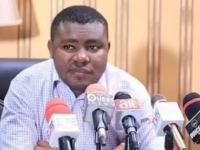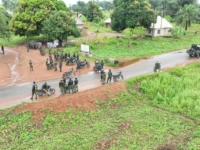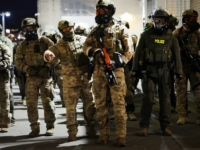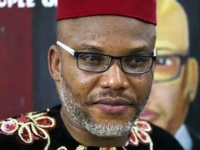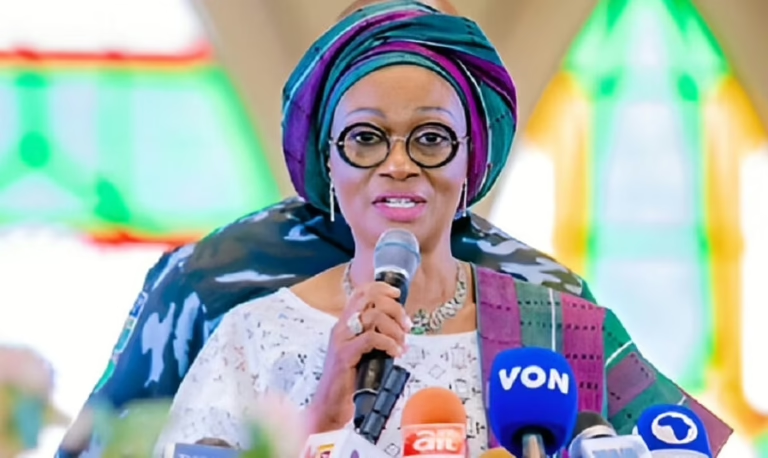Leading figures in Nigeria have underscored the urgent need to revive core family-during-singers-birthday-party/” title=”Davido vs Burna Boy: Verydarkman spotted bonding with Odogwu’s … during singer’s birthday party”>family values as a crucial step toward tackling the nation’s escalating insecurity and moral challenges.
During the inauguration of “Exercise Haske Biyu” 2025 at the Armed Forces Command and Staff College (AFCSC) in Jaji, Kaduna State, key dignitaries including the First Lady, Senator Oluremi Tinubu, the Sultan of Sokoto, Alhaji Muhammad Sa’ad Abubakar III, and the Catholic Bishop of Sokoto Diocese, Most Rev. Matthew Hassan Kukah, highlighted how the disintegration of family structures is a significant driver behind rising social ills, radicalization, and violent offenses nationwide.
In her keynote speech delivered in Kaduna, Mrs. Tinubu-represented by the Vice President’s wife, Hajiya Nana Shettima-expressed concern over the diminishing role of Nigerian families in nurturing children. She pointed out that this gap leaves young people susceptible to negative influences such as gang involvement, substance abuse, sexual exploitation, and extremist beliefs.
“The absence of parental guidance creates a vacuum often filled by harmful peer groups and destructive habits, resulting in devastating consequences for families and posing serious threats to national stability,” she warned.
She emphasized that the family serves as the foundational pillar of any society, where essential values like love, respect, sacrifice, and patriotism are first instilled.
The Sultan of Sokoto echoed this sentiment, referring to the family as the “smallest yet most vital unit of society.”
He remarked, “Communities weakened by fragile family bonds struggle to thrive, whereas strong family units underpin peaceful and resilient nations.”
Expressing his worries, the Sultan noted that corruption, illicit wealth accumulation, and unchecked technological advances have eroded traditional family discipline.
He further cautioned that the pervasive influence of social media and digital content increasingly exposes children to detrimental ideas, thereby weakening established moral foundations.
Additionally, Bishop Kukah’s insights-presented by Rev. John Joseph Hayab, chairman of the Christian Association of Nigeria (CAN) for 19 northern states and the FCT-linked youth restiveness and radicalization to fractured family environments and inadequate parenting.
“Various challenges prevent many parents from effectively raising their children to become responsible members of society,” he explained, connecting societal instability to early developmental shortcomings within the home.
Drawing from Proverbs 22:6, Rev. Hayab emphasized that critical life skills such as emotional intelligence, discipline, and conflict management are cultivated first within the family setting. He asserted that households exemplifying positive conduct nurture citizens who actively promote peace and unity.
He also called on government authorities to prioritize funding for family-centered support programs, counseling services, and grassroots initiatives aimed at reinforcing family cohesion and curbing radicalization.
Earlier in the program, Air Vice Marshal Hassan Idris Alhaji, commandant of AFCSC, described “Exercise Haske Biyu” as an ambitious, multi-sector collaboration designed to improve responses to internal security threats and low-intensity conflicts. The three-week exercise convenes senior military personnel, security agencies, government ministries, NGOs, media representatives, and strategic partners to craft actionable, cooperative strategies addressing national security issues.
He noted that the focus on family values was intentionally selected to underscore the home’s critical role within Nigeria’s overall security framework.
Scheduled from September 15 to October 3, the event includes strategic lectures, operational planning sessions, hands-on field drills, and an immersive “Day in the Life of a Soldier” experience tailored for civilian attendees.
All speakers concurred that Nigeria’s path to lasting peace and security fundamentally begins with strengthening the family unit, urging all stakeholders to recognize the household as the frontline defense against insecurity.





